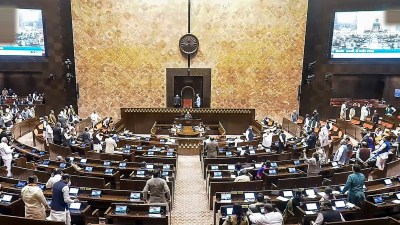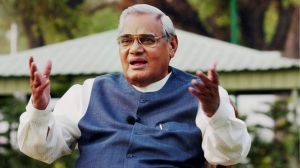Stakeholders from across the board have raised concerns that the short delivery timeline may put added pressure on already overworked delivery persons, potentially prompting them to engage in rash driving and traffic violations.

Serious concerns have been raised about the riders’ working conditions
Zomato aims to fulfil quick 10-minute deliveries out of a “finishing stations’ network” located in close proximity to high-demand customer neighbourhoods, starting with four such stations in Gurgaon under a pilot project. The company’s claims that it will not put any pressure on delivery workers to deliver faster has not been enough to assuage concerns around the working conditions of gig workers.
In a strong response against Zomato’s move, the Telangana Gig and Platform Workers Union said that Zomato should look at its delivery workers “as human beings”, and not as “data points” for an algorithm to manage. The union represents more than 30,000 workers engaged in gig work with companies like Zomato, Swiggy, Uber, and Ola.

Congress MP Karti Chidambaram, who had earlier raised concerns around lack of social security benefits available for gig workers in Parliament, called Zomato’s 10-minute delivery pilot “absurd”.
“It’s going to put undue pressure on the delivery personnel, who are not employees and who have no benefits or security, who have no bargaining power with Zomato,” he tweeted in response to the company’s announcement.
Story continues below this ad
Chidambaram has also sent a letter to the publicly listed company demanding information on the average daily earnings of Zomato’s delivery workers, and whether it has evaluated if the incentives posed to its delivery workers has led to hazardous consequences like rash driving and flouting of traffic rules.
Madhya Pradesh Home Minister Narottam Mishra has said that the quick delivery timeline would result in its delivery workers violating traffic rules.
“Zomato’s plan of delivering food in 10 minutes is like playing with the lives of its employees (delivery partners) as well as the lives of other people. Not only Zomato, no one will be allowed to violate traffic rules in Madhya Pradesh. I am exhorting Zomato to change these plans,” Mishra said.
🗞️ Subscribe Now: Get Express Premium to access the best Election reporting and analysis 🗞️
Story continues below this ad
The risks of traffic violations and rash driving have been highlighted
Zomato has said that to complete a quick delivery, workers will typically ride for between 3 and 6 minutes, at an average speed of around 20 km per hour, to address concerns that they would engage in rash driving to stick to the 10-minute timeline. But that assurance has not been enough.
The national general secretary of the Telangana gig union, Shaik Salauddin, said that while promoting fast deliveries, companies like Zomato “wash off their hands by concealing how they structure the work to portray as if delivery workers are independently engaging in traffic violations and hazardous driving conditions risking themselves and the other pedestrians on the road”.
He said that it was incentive-driven work conditions that these platforms employ “which incites the delivery workers to chase those incentives targets and motivates them to resort to such acts”.
Story continues below this ad
In a meeting among the representatives of Zomato, Swiggy, and officials from Greater Chennai’s traffic police on Friday, the issue of rash driving by delivery workers of these firms was raised. Zomato has informed the department that its 10-minute food delivery pilot is planned to launch only in a few cities in India, and that if it were to launch in Chennai, the company would do so only with proper intimation and due coordination with the police department.
Restaurants are concerned about making compromises with quality
While the Zomato pilot will start from “finishing stations” that would probably have a few popular dishes ready to deliver, restaurants have expressed scepticism about the quality of food that can be delivered within 10 minutes.
“Preparation of fresh food at restaurants is a culinary art and in this race of faster turnaround times, we are concerned that the essence of the food industry should not be lost,” Prakul Kumar, general secretary of the National Restaurants Association of India told The Indian Express.
Story continues below this ad
Newsletter | Click to get the day’s best explainers in your inbox









































